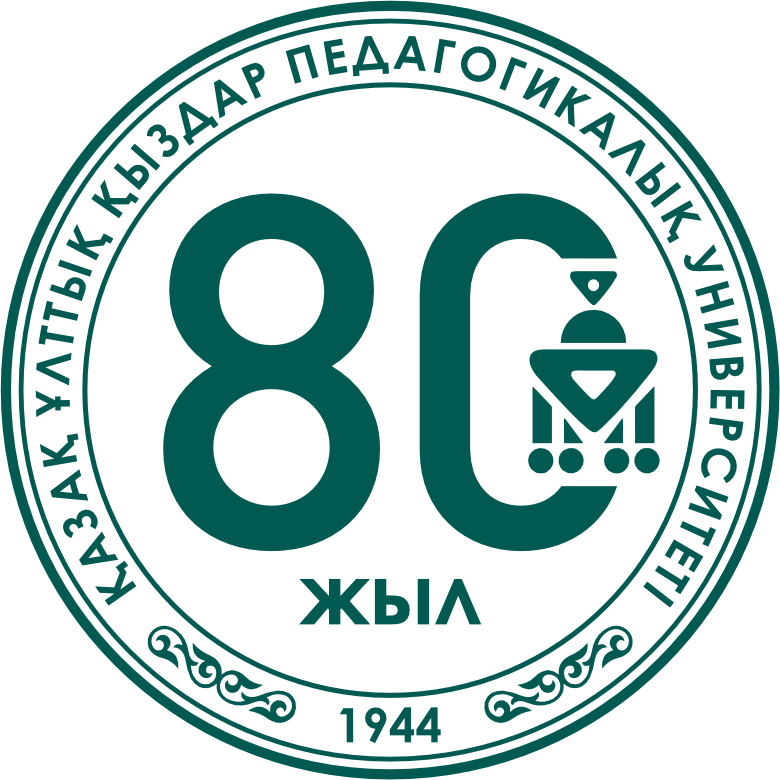6B01301 – Pedagogy and Methods of Primary Training
-
-
Educational programs
- College
-
Undergraduate
-
Institute of Pedagogy and Psychology
- 6В01101 – Pedagogy and psychology
- 6B01201 – Pre-school Training and Education
- 6B01301 – Pedagogy and Methods of Primary Training
- 6B01403 – Physical Education and Sport
- 6B01801 – Training of specialists in social pedagogics and self-knowledge
- 6B01901 - Special pedagogy
- 6В03102 — Psychology
- Educator and speech therapist of preschool organizations
-
Institute of Philology
- 6B01701 – Kazakh Language and Literature
- 6B01702 – Kazakh Language and Literature at schools with non-Kazakh Training
- 6В01703 – Russian Language and Literature
- 6B01704 – Russian Language and Literature at schools with non-Russian Training
- 6В01705 – Foreign Language: two Foreign Languages
- 6В02301 – Translation studies
- 6В02302 – Philology
-
Institute of Physics, Mathematics and Computing
- 6В01501 – Mathematics
- 6B01502 – Mathematics-Physics
- 6B01503 – Mathematics-Informatics
- 6В01504 – Physics
- 6B05302-Physics
- 6В01505 – Physics - Computer Science
- 6В01506 – Computer science
- 6В01513 – Physics-Electronics
- 6В01514 – Computer Science and Robotics
- 6В06101 - Design of digital analytical educational systems
- 6В06102 – Information Systems
- Institute of natural science
- Institute of Social Sciences, Humanities and Art
-
Institute of Pedagogy and Psychology
- Graduate
- Doctorate PhD
- Institutes
- College
- Student Assistance Center
- Center for Pedagogical Excellence
- Educational and methodical association
- Coordination Council
- Career and Employment
Education
-
Educational programs
- College
-
Undergraduate
-
Institute of Pedagogy and Psychology
- 6В01101 – Pedagogy and psychology
- 6B01201 – Pre-school Training and Education
- 6B01301 – Pedagogy and Methods of Primary Training
- 6B01403 – Physical Education and Sport
- 6B01801 – Training of specialists in social pedagogics and self-knowledge
- 6B01901 - Special pedagogy
- 6В03102 — Psychology
- Educator and speech therapist of preschool organizations
-
Institute of Philology
- 6B01701 – Kazakh Language and Literature
- 6B01702 – Kazakh Language and Literature at schools with non-Kazakh Training
- 6В01703 – Russian Language and Literature
- 6B01704 – Russian Language and Literature at schools with non-Russian Training
- 6В01705 – Foreign Language: two Foreign Languages
- 6В02301 – Translation studies
- 6В02302 – Philology
-
Institute of Physics, Mathematics and Computing
- 6В01501 – Mathematics
- 6B01502 – Mathematics-Physics
- 6B01503 – Mathematics-Informatics
- 6В01504 – Physics
- 6B05302-Physics
- 6В01505 – Physics - Computer Science
- 6В01506 – Computer science
- 6В01513 – Physics-Electronics
- 6В01514 – Computer Science and Robotics
- 6В06101 - Design of digital analytical educational systems
- 6В06102 – Information Systems
- Institute of natural science
- Institute of Social Sciences, Humanities and Art
-
Institute of Pedagogy and Psychology
- Graduate
- Doctorate PhD
- Institutes
- College
- Student Assistance Center
- Center for Pedagogical Excellence
- Educational and methodical association
- Coordination Council
- Career and Employment
-
Educational programs
-
-

Дисциплины ЕНТ
-

Академическая мобильность
-

ECTS
-

Пороговый балл
-

Minor
-
CHARACTERISTIC OF THE EDUCATIONAL PROGRAM
Type of educational program
current
Name of the educational program
6В01301 Pedagogy and methods of primary education
Field of education
6B01 Pedagogical sciences
Training direction
6В013 Teacher training without subject specialization
The group of the educational program
В003 Pedagogy and primary education methodology
License to engage in educational activities
The educational program is implemented on the basis of the appendix to the License No. KZ75LAA00018542 dated August 04, 2020 in the direction of personnel training Teacher training without subject specialization, issued by the RSU "Committee for Quality Assurance in the field of Education and Science of the Ministry of Education and Science of the Republic of Kazakhstan".
Number and Date of Registration/ Update in the Register of EP
UNT Subjects
Biology
Geography
Educational level by NQF
Bachelor's Degree, level 6
Awarded degree
Accreditation
ACQUIN, 30.09.2021 – 30.09.2027
Rating of the educational program
Atameken:
2021-7th place out of 31;
2022-5th place out of 33;
IAAR:
2021 ж. - 3 nd place;
2022 ж. – 2 nd place
The total amount of academic credits
240
Study duration
4 years
-





